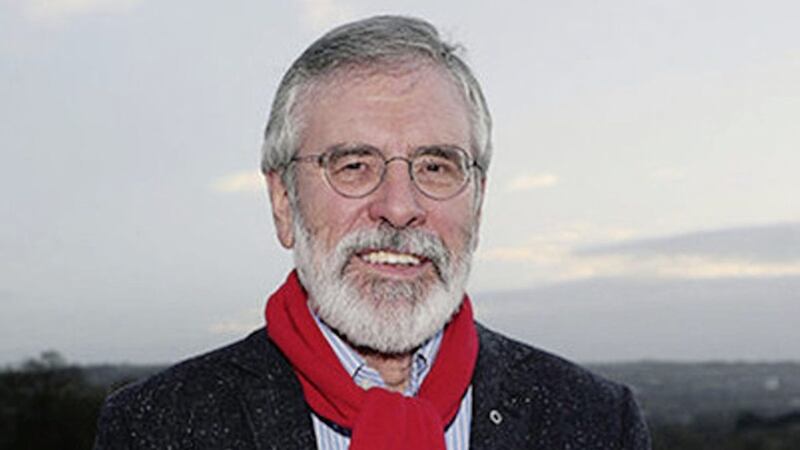You can have a choice of column today. Would you like a bit of satire on Gerry Adams's promised book of recipes, or a serious piece on the tragedy of our education system?
That, you say, depends on the likely content of both columns. Well, the one about Sinn Féin's cooking books (take your time, we have all day) would include terms like the IRA Chef of Staff (or maybe all chefs and no Indians), politicians biting the bullets (before handing them up) and how to make political fudge.
Gosh, what laughs we could have - the Good Friday fry-up, how when the IRA said "not a bullet, not an ounce", they had to eat their words (which were slowly roasted over a hot British negotiating table) and there is at least a page of material about a steak-knife.
Great, you say, let's have more of that. Well, there is a problem. It would inevitably conclude that the recipe book was just another clever distraction from the political failure of 25 years of war and 25 years of sectarian politics. Anyway, a column with remarks like that might upset some sensitive souls in the world of culinary politics. Oh, all right, you say, let's analyse our education system instead.
So here goes: although we have 3 MEPs, 18 MPs, 90 MLAs and 502 local councillors, the Department of Education (DENI) reported last week that our education system is under "considerable strain" (civil servants love understatement) and faces "severe financial challenges". For a society with over 600 politicians, we are not much good at normal politics.
Since 2015-16, 692 teachers and 738 staff have been made redundant (and we continue to turn out the same number of qualified teachers every year) and since 2011 school funding has been cut by an estimated £200 million in real terms.
So most of our schools cannot survive on the money they receive from government, because it does not meet their growing costs. Many families are now asked for "financial donations", or equipment in kind, to fund our "free" education system. That means that children in some schools have to bring money for the pencils they use in class.
Some families can afford that, but in the north there are 370,000 people in poverty, including 110,000 children. This represents a quarter of all children here, a figure largely unchanged in the past ten years. A significant explanatory factor is that more people here have no educational qualifications and fewer people have higher level qualifications than in the rest of the UK.
So some families, who are poor because of a low level of education, are being asked to help fund their children's learning, because the British government refuses to invest in education here. However, last year it allowed multinational companies to avoid paying £5.8 billion (yes billion) in corporate taxes by booking their profits overseas. (Lower corporation taxes were also the main economic policy of SF and the DUP in Stormont.)
In most societies that would become an important news item and generate political debate. Here it made the news briefly and produced little political interest.
The reason is that the Good Friday Agreement, which is the basis for our political system, ignored education and indeed all social and economic policy. It was an agreement about politicians and not about people, even though a new society could only be built on investment in education. Instead education at all levels has been starved of resources, which has been a recipe for social and economic (and thus political) stagnation.
Meanwhile, our children must witness a meaningless argument on whether or not we should have a border poll. It will offer a choice between uniting our deprived children with the 200,000 children in poverty in the 26 counties, or leaving them in political union with the thousands of children in Britain, where schools are having to provide food and clothes parcels for children from poor families.
Now, there's a choice worth having (although, as de Valera always assured us, Irish poverty is a form of patriotism).
Sixty schools here were recently told by DENI that they no longer qualify for money for supporting disadvantaged children in schemes such as breakfast clubs. This means that many children in these schools will now have to start the school day on an empty stomach.
One thing which both schools and poor families might benefit from is advice on how to cook breakfast for hungry children when they have no money. Now, whom could we ask to produce a book of suitable recipes?
Would any politician like to step up to the (empty) plate?









